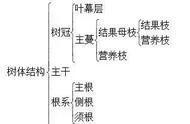1 在谈论我们经常做的习惯和行动时,我们一般使用不定式形式。比如说
- When I get home on Fridays, I like to run a bath and pour myself a glass of wine.
- I like to play golf with my friends at the weekend.
2 如果重点放在行动的结果上,而不是行动本身的快乐,那么就用不定式。比如说
- I like eating healthily. (I get pleasure from eating healthy food.)
- I like to eat healthily. (I think it’s important to take care of my body and eating healthy food helps with this.)
- I like doing my homework as soon as I get it. (Because I just love doing homework and I’m so excited when I get it.)
- I like to do my homework as soon as I get it. (Because then it’s finished and I don’t have to worry about it.)
结合以上两点,经常用不定式来表示维持习惯的快乐,而不是动作本身的快乐。比如说
- I like getting my hair cut. (I get enjoyment from being in the salon and the process of getting my hair cut)
- I like to get my hair cut once a month. (I make an effort to maintain my appearance by doing this)
- I like reading the news. (I get enjoyment from reading the news)
- I like to read the news every morning. (I maintain this habit so that I can stay informed about current affairs)
在这些句子中,"like to"可以用 "make an effort to "或 "think it’s important to "来代替,以表达类似的意思。这并不是说这些人没有从行动本身获得乐趣,但他们这样做的主要原因是为了定期重复行动的长期利益。
- I don’t like eating chocolate. (I don’t like the taste of chocolate)
- I don’t like to eat chocolate too often. (I like chocolate but I know it’s unhealthy to eat too much so I limit the amount I eat)















